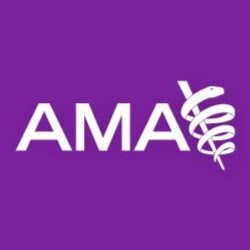The American Medical Association Opposes Drug Importation
 In 2016, the American Medical Association reaffirmed its longheld opposition to drug importation through two policy statements. The first, "Prescription Drug Importation and Patient Safety D-100.983," supports only the importation of FDA-approved medicines. The second, "Federal Regulation and Computerized Tracking of Pharmaceuticals During Shipping and Handling from Manufacture Until Ultimately Received by Patient D-100.985," promised to actively oppose drug diversion, illegal importation, and drug counterfeiting.
In 2016, the American Medical Association reaffirmed its longheld opposition to drug importation through two policy statements. The first, "Prescription Drug Importation and Patient Safety D-100.983," supports only the importation of FDA-approved medicines. The second, "Federal Regulation and Computerized Tracking of Pharmaceuticals During Shipping and Handling from Manufacture Until Ultimately Received by Patient D-100.985," promised to actively oppose drug diversion, illegal importation, and drug counterfeiting.
Prescription Drug Importation and Patient Safety D-100.983
Our AMA will:
(1) support the legalized importation of prescription drug products by wholesalers and pharmacies only if: (a) all drug products are Food and Drug Administration (FDA)-approved and meet all other FDA regulatory requirements, pursuant to United States laws and regulations; (b) the drug distribution chain is "closed," and all drug products are subject to reliable, "electronic" track and trace technology; and (c) the Congress grants necessary additional authority and resources to the FDA to ensure the authenticity and integrity of prescription drugs that are imported;
(2) oppose personal importation of prescription drugs via the Internet until patient safety can be assured;
(3) review the recommendations of the forthcoming report of the Department of Health and Human Services (HHS) Task Force on Drug Importation and, as appropriate, revise its position on whether or how patient safety can be assured under legalized drug importation; and
(4) educate its members regarding the risks and benefits associated with drug importation and reimportation efforts.
Federal Regulation and Computerized Tracking of Pharmaceuticals During Shipping and Handling from Manufacture Until Ultimately Received by Patient D-100.985
Our AMA will:
(1) continue to actively oppose illegal drug diversion, illegal Internet sales of drugs, illegal importation of drugs, and drug counterfeiting; and
(2) work with the Congress, the Food and Drug Administration, the Drug Enforcement Administration, and other federal agencies, the pharmaceutical industry, and other stakeholders to ensure that these illegal activities are minimized.